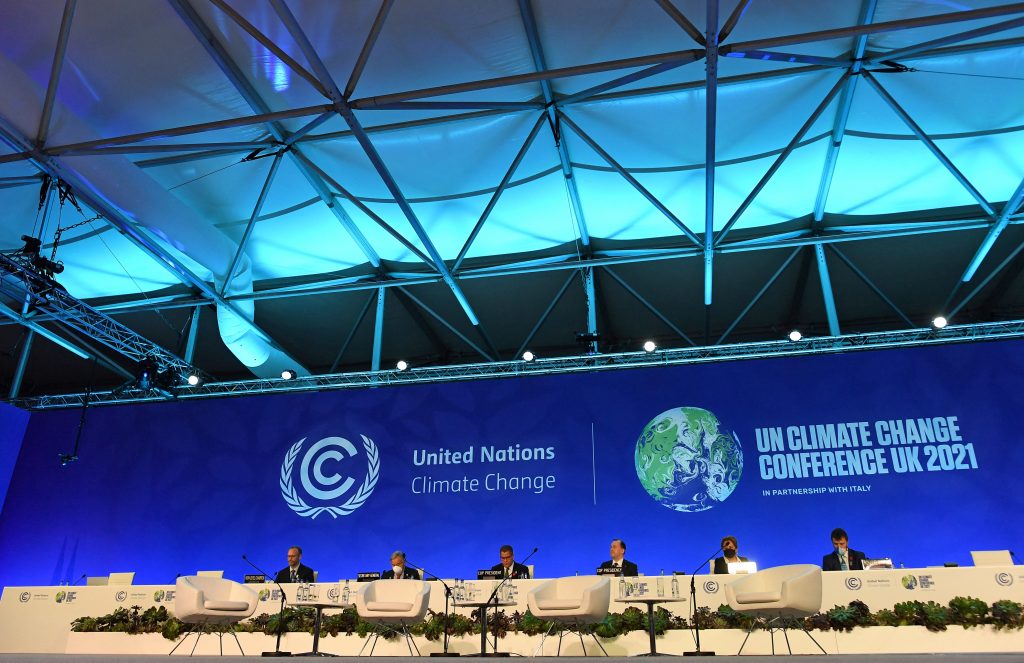
- ARAB NEWS
- 18 Jul 2025

GLASGOW: COP26 climate talks ended Saturday with the adoption of the Glasgow Climate Pact asking countries to “phase down” coal-fired thermal power.
The pact adopted at the 26th Conference of the Parties to the U.N. Framework Convention on Climate Change, or COP26, in Glasgow, Scotland, became the first COP outcome document to touch on coal power.
The conference, originally scheduled to end Friday, had to be extended for an extra day to forge an agreement on the outcome document. Although a draft for the document called on countries to “phase out” the use of coal power, China and India stood against the expression in the last minute, a move that apparently led the finalized pact to seek to “phase down” coal power instead.
Specifically, the pact calls on each country to promote technological development that contributes to the shift to an energy system with limited greenhouse gas emissions, including the acceleration of efforts to phase down the use of coal that is not mitigated with technologies to reduce carbon dioxide emissions.
The pact also calls for pursuing efforts to cap global warming at 1.5 degrees Celsius compared with preindustrial times, a nonbinding target set under the 2015 Paris Agreement, an international framework for combatting global warming.
In addition, COP26 agreed on the guidelines for international trading of emissions reductions, which are part of the rules for administering the Paris Agreement. The accord came after the past two COP meetings failed to agree on such guidelines.
Furthermore, the Glasgow Climate Pact called on all countries to revisit and strengthen their current emissions targets for 2030 by the end of next year. It also noted that ways to procure funds will be discussed for assisting developing countries that are faced with abnormal weather or rising sea levels due to global warming.
JIJI Press